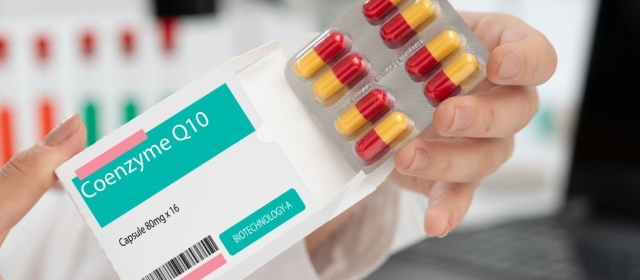
All Sexual Health Topics
Upcoming Events

- Sexual Health Topics: Men’s Sexual Health, Women’s Sexual Health
Interstitial cystitis/bladder pain syndrome (IC/BPS) causes chronic pain in the bladder, often leading to a frequent need to urinate, pain while urinating, and constant pain or tenderness in the bladder and pelvic region. IC/BPS is more common in women than men and can affect any person of any age.

- Sexual Health Topics: Women’s Sexual Health
A yeast infection is the overgrowth of the naturally occurring fungal species, candida, and can occur for a variety of reasons. Yeast infections often present in the mouth or vagina, and on occasion can grow under the foreskin of uncircumcised penises. These are quite common in women, with 3 out of 4 reporting at least one yeast infection in their lifetime, usually in women of reproductive age.

- Sexual Health Topics: Men’s Sexual Health, Mental Health & Psychology
Penile dysmorphic disorder (PDD) is a subclassification of body dysmorphic disorder (BDD) and commonly characterized by a severe fixation on the appearance of one’s own penis, usually viewing minor or imagined problems as making it undesirable or “worse” than other penises. This can result in excessive grooming, self-help methods like using vacuums or stretchers, and sometimes going as far as multiple cosmetic surgeries. Additionally, PDD can contribute toward mental health disorders such as depression or anxiety and can even lead to impaired functioning in sexual and everyday situations.

- Sexual Health Topics: Men’s Sexual Health, Women’s Sexual Health, Mental Health & Psychology
Insomnia is a condition that negatively affects the ability to fall asleep and stay asleep, leading to poor sleep quality. Over time, this can lead to issues with heart health, mental health, and diabetes, all of which have an influence on sexual function.

- Sexual Health Topics: Men’s Sexual Health, Women’s Sexual Health, Sexual Health Management & Treatments
Coenzyme Q10 (CoQ10) is a naturally occurring antioxidant that helps with cellular functions, like energy production, cell growth, and slowing cellular death. Essentially, CoQ10 is affected by increased levels of what’s called oxidative stress (OS), which makes a high amount of reactive oxygen species (ROS), which are super reactive cells with no partner cell to keep them in check.

- Sexual Health Topics: Women’s Sexual Health, Medications & Sexual Health, Sexual Health Management & Treatments
Menopause is a natural transition that occurs when a person has gone at least 12 months in a row without menstruating (without birth control intervention). This is due to all of the oocytes (egg cells) in the ovaries being released, and usually occurs around age 50, with transitional symptoms (perimenopause) beginning in the mid-40s (U.S. averages). In some cases of oophorectomy, when both ovaries are removed, menopause may begin early.

- Sexual Health Topics: Women’s Sexual Health
Postural Orthostatic Tachycardia Syndrome (POTS) is a condition that primarily affects women, but also a handful of men. Of the roughly 6 million Americans affected, around 80-85% of them are women of childbearing age. POTS is a type of dysautonomia, which is a group of neurologic disorders that affect the system that regulates the processes related to blood flow, heart rate, sexual arousal, and digestion. Specifically, when someone with POTS stands up, the body will release more adrenaline than normal to account for an above normal amount of blood pooling below the heart, which for an unknown reason, their blood vessels do not respond to very well. However, the heart still responds the same as a non-POTS person, leading to an increase in heartbeat without the right amount of blood flow. Due to this imbalance, lightheadedness, dizziness, and sometimes fainting can occur.

- Sexual Health Topics: Men’s Sexual Health
Testicular torsion is what occurs when the testicle rotates inside the scrotum, which then twists the spermatic cord, cutting off blood flow to the testicle. Often, this will present as severe pain and swelling, as well as a testicle that’s positioned higher than normal or at an unusual angle. This can be accompanied by abdominal pain, fever, nausea and vomiting, frequent urination, discoloration, or a visible lump. While rare, testicular torsion is considered a medical emergency, and anyone experiencing these symptoms should seek immediate medical attention. If blood flow does not return to the testicle within 6 hours, there can be serious consequences, and the longer you wait for treatment, the more likely it is that you may lose the affected testicle.

- Sexual Health Topics: Men’s Sexual Health, Women’s Sexual Health, Mental Health & Psychology
Feelings of guilt after sexual intercourse may be distressing or alarming, and they may even prevent someone from attempting to partake in sexual activity. However, there are explainable reasons for these feelings, and ways to help mitigate overall feelings of uneasiness, guilt, and shame that may be associated with sexual activity.

- Sexual Health Topics: Women’s Sexual Health, Medications & Sexual Health, Sexual Health Management & Treatments
Emergency contraception consists of hormonal medications or other methods that can be taken to help prevent pregnancy in the case of unprotected intercourse, birth control failure, or non-consensual intercourse. There are several types of emergency contraception offered by healthcare services and recommended by global health organizations.

- Sexual Health Topics: Men’s Sexual Health
A.D.A.M., or Androgen Deficiency in the Ageing Male, has been equated to the male version of menopause. However, there are quite a few differences between A.D.A.M. and menopause. For example, menopause is often sudden, typically within the first 12 months after the end of ovulation and an almost immediate drop in estrogen after perimenopause, where estrogen loss is more gradual. Whereas A.D.A.M. is a more gradual reduction of testosterone over time due to an imbalance in the hypothalamic-pituitary-testicular axis, the part of the brain and related system that regulates male reproductive function.

- Sexual Health Topics: Men’s Sexual Health, Women’s Sexual Health, Mental Health & Psychology
A fear of semen may be attributed to several other conditions. One common reason is related to obsessive compulsive disorder (OCD). Specifically, the contamination subcategory of OCD, in which obsessions (unwanted thoughts, feelings, urges, etc.) and compulsions (actions taken to relieve distress from obsessions) center on germs, illness, or contamination. These compulsions are fueled by disgust, which is a defensive reflex the body uses to avoid contamination. However, with OCD, that disgust is exacerbated by obsessions.

